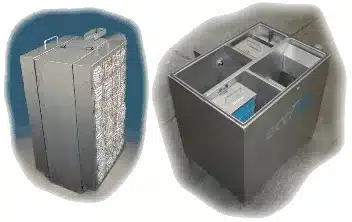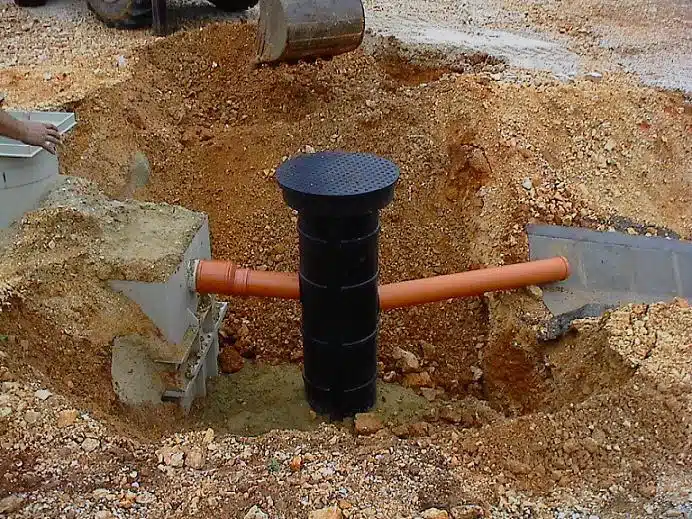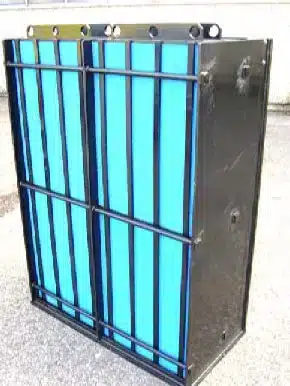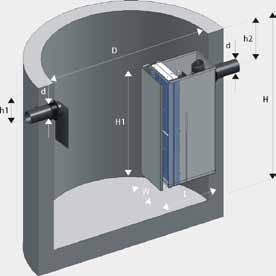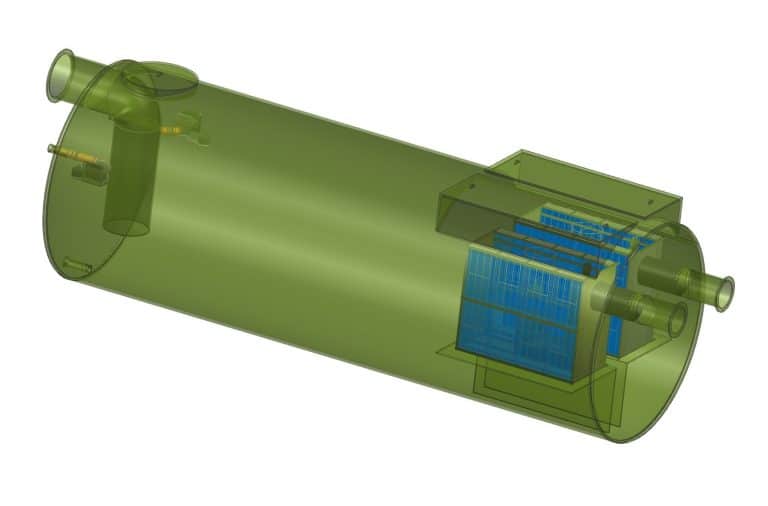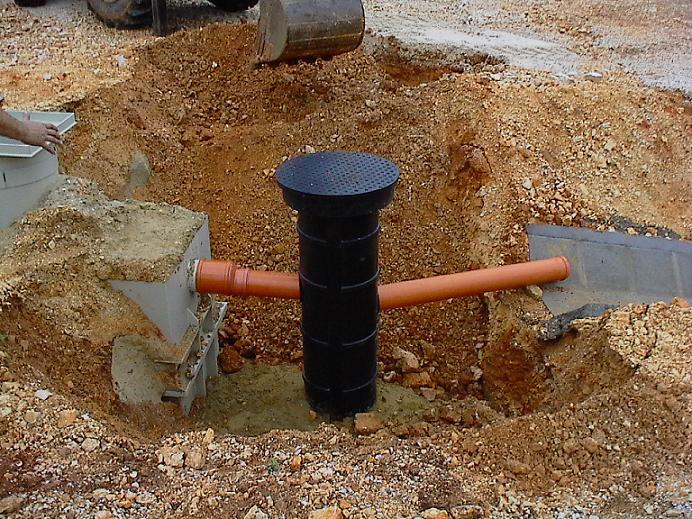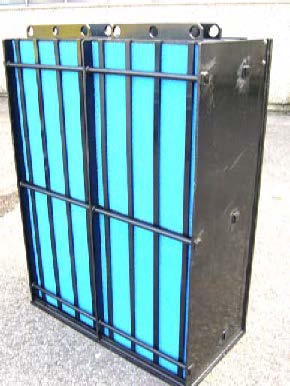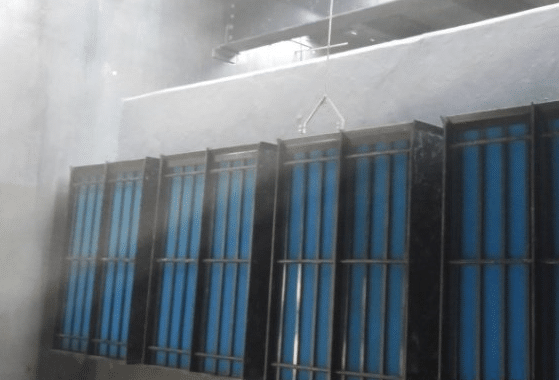Are Alaska’s industries doing enough to protect our precious water resources? As we worry more about saving water, the focus on how industries handle wastewater grows. Alaska Below Ground Oil Water Separators are key for companies aiming to meet high environmental standards.
These systems are crucial in removing dangerous oils and grease from wastewater before it gets into the environment. With new rules, businesses in Alaska are using these systems to follow the law and dodge big fines.
It’s very important to treat wastewater right. These underground systems separate oils with a density less than 0.95 from water. This is key for keeping our water clean and safe for Alaska’s unique nature.
Key Takeaways
- Alaska Below Ground Oil Water Separators are essential for environmental compliance
- Underground oil/water separators remove harmful oils and grease from wastewater
- Stricter regulations drive the need for efficient wastewater treatment solutions
- These systems help businesses avoid penalties and protect Alaska’s water resources
- Proper wastewater treatment is crucial for maintaining ecological balance
Understanding the Need for Oil Water Separators in Alaska
Alaska’s environment needs effective oil/water separation systems. The state’s clean waters are at risk from industrial activities. Oil water separators are key to protecting Alaska’s ecosystems and meeting environmental standards.
Environmental Regulations and Water Conservation
Alaska has strict rules to protect its waters. Businesses must use strong oil spill prevention and stormwater management. Oil water separators help meet these standards by ensuring discharged water is clean.
Types of Oil-Bearing Wastewater Discharges
Many facilities produce wastewater with oil. These include car wash stations, industrial sites, and marine activities. Each type of facility has its own treatment challenges. Specialized oil/water separation systems are needed to handle these issues.
Importance of Proper Wastewater Treatment
Proper treatment of industrial wastewater is vital for the environment. It stops harmful oil from getting into water and keeps it clean. Advanced oil water separators remove pollutants well, helping Alaska keep its natural beauty and resources safe.
How Alaska Below Ground Oil Water Separators Work
Below Ground Oil Water Separators in Alaska are key for managing wastewater. They use advanced methods to split oil from water well.
Gravity Separation Process
The first step in separating oil and water uses gravity. Oil, being lighter, floats on top of water. This simple method is the base of the separation process.
Enhanced Coalescing Technology
Enhanced coalescing technology improves oil-water separation. It uses special materials to draw oil droplets together. These merged droplets are then easier to remove from water, making the system more efficient.
Efficiency in Removing Non-Soluble Oils and Grease
Below Ground Oil Water Separators are great at removing oils and grease that don’t mix with water. They can handle different types of hydrocarbons, like motor oils and lightweight oils. Some models can get as clean as 0.1 parts per million of emulsified oil. This means they recover a lot of oil and produce clean water.
Applications of Underground Oil/Water Separation Systems
Underground oil/water separation systems are key for managing industrial wastewater and stormwater runoff. They help facilities meet US EPA Clean Water Act standards. These systems are vital for vehicle maintenance shops, industrial sites, and places with small oil and water flows.
In vehicle maintenance shops, these tanks catch oil and grease from wash water and spills. This stops harmful stuff from getting into the environment. Industrial sites use them to treat wastewater before letting it go, following the rules.
Managing stormwater is another big use. When it rains, runoff from parking lots and industrial areas can bring oil and pollutants. These systems catch these contaminants, keeping local waterways and ecosystems safe.
These systems vary in size and flow rate. This means facilities can pick the right underground tank for their needs. Whether it’s a small workshop or a big industrial complex, there’s a solution for effective oil/water separation.
Key Features of Freytech Inc.‘s Below Ground Oil Water Separators
Freytech Inc. is a leader in making things right with the environment. Their below ground oil water separators have features that stand out. They are great at separating oil from water.
Advanced Separation Technology
Freytech Inc.’s separators use the latest technology to take oils and greases out of wastewater. This means the water coming out is clean and meets high environmental standards. It’s why many industries choose Freytech for their oil-contaminated water problems.
Compliance with Discharge Limits
These systems are made to keep within North American hydrocarbon discharge limits of 10 PPM. This ensures companies using Freytech’s separators follow the law. It’s key for businesses that want to be eco-friendly.
Versatility in Hydrocarbon Separation
Freytech Inc.’s separators are great at handling different kinds of hydrocarbons. They work with everything from motor oil to jet fuel. They can handle flows from 45 to 10,000 gallons per minute and have tanks from 300 to 50,000 gallons. This makes them useful for all kinds of industrial needs.
Benefits of Installing Below Ground Oil Water Separators
Below ground oil water separators are key for businesses with oil-contaminated wastewater. They help meet environmental rules and protect water sources. These systems separate oil from water well, reducing spill risks.
These separators boost wastewater treatment. They take out harmful stuff before water goes out, keeping nature safe. This smart move helps companies dodge big fines and legal trouble from bad waste handling.
Underground oil water separators are easy to keep up and can be made to fit any site. They’re a smart choice for big and small companies alike. By using these systems, companies show they care for the planet and might save money on oil recovery and waste handling.
Maintenance and Operation of Underground Oil Water Separators
Keeping your underground oil/water separator in top shape is crucial. These systems protect our environment, so it’s important to take care of them. Let’s look at the key steps for maintaining and operating these important devices.
These separators are crucial in storm water systems. They process runoff to meet the US EPA’s Clean Water Act standards. With effective oily water treatment, facilities protect the environment and dodge big fines.
Regular Inspection and Cleaning
Regular check-ups are key to managing separators well. By checking them often, you can catch problems early. Clean them as needed, based on how much they’re used and their size. This keeps your separator working great.
Oil Removal Procedures
Removing oil on time is key for good system performance. When oil accumulates, it’s important to take it out quickly. This stops overflows and keeps your separator running smoothly. By following the right steps for removing oil, you’ll make your equipment last longer and work better.
Monitoring System Performance
It’s vital to watch your separator closely. Use liquid level sensors and control panels to check how well it separates. This helps make sure your system meets the required standards. By keeping an eye on your separator, you’ll stay in compliance and get the best out of it.

